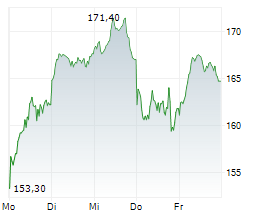Here’s How Nike’s NFT Adventure Led to a Class Action Lawsuit
Nike jumped on the NFT bandwagon in 2021 by acquiring a startup for 'virtual shoes' and launching its own NFTs. However, after abruptly ending its NFT operations at the end of 2024, the company is now facing a $5 million lawsuit over allegations of a 'rug pull.'

In 2021, Nike jumped on the NFT bandwagon by acquiring a “virtual shoes” startup and issuing NFTs. After abruptly ending its NFT activities at the end of 2024, the company now faces a $5 million lawsuit over an alleged “rug pull.”
Nike, the world-famous sports shoe manufacturer, has hardly covered itself in glory with its foray into the world of NFTs. In 2021, at the height of the NFT boom, Nike purchased the startup RTFKT. Together, Nike and RTFKT released NFTs (non-fungible tokens) depicting shoes or hoodies that NFT owners could wear in the metaverse (a virtual world).
The move made sense in itself. If there are people who want to outfit their digital avatars in the metaverse with exclusive shoes, then Nike would naturally market its brand as a virtual shoe. In 2021, when people were spending millions to secure a CryptoPunk as an avatar for social media, this approach seemed logical.
Initially, Nike’s NFT project went very well. Investors could buy and sell the NFTs issued by RTFKT and Nike on standard platforms; the markets were immediately liquid, and like everything with a big name behind it in 2021 and 2022, prices climbed sharply.
In April 2022, the “Nike Cryptokicks” collection launched. It consisted of 20,000 NFTs that quickly reached a market value of several thousand dollars each, with rare items even exceeding $100,000. Nike profited handsomely from both the initial sales and a trading fee collected in the secondary market—according to the lawsuit, this amounted to tens of millions of dollars. The company promoted the NFTs by offering owners rewards for completing small tasks and, on occasion, exclusive access to limited-edition (physical) shoes.
In essence, Nike did everything right. The corporation transformed its powerful brand into NFTs, enhanced by unique rewards and tasks. It profited from sales and transaction fees, while the community could earn with the tokens as well. However, in December 2024, RTFKT abruptly shut down, causing Nike to completely withdraw from NFTs.
Naturally, prices plummeted as a result. Many in the crypto scene called it a “rug pull”—a term for when someone releases a token, collects funds, and then abandons the project, pulling the rug out from under investors. Rug pulls are common among dubious token issuers—but not from a global sportswear conglomerate with $50 billion in annual revenue.
Now, a group of investors is suing Nike over the alleged rug pull—accusing the company of both the rug pull and the unauthorized issuance of a security. The argument is that the NFTs met the requirements of the Howey test for a security: the tokens were offered publicly, investors bought them with money in the (reasonable) hope that the actions of a publicly traded company would increase their value or otherwise yield profit. This argument is plausible, especially since the NFTs failed to retain value after Nike pulled the plug. The tokens still exist—after all, tokens on a blockchain are immutable—but the value basis, the backing from the Nike brand that investors had bought into, was erased.
According to the lawsuit, Nike sold unregistered securities to retail investors who lacked the technical and financial expertise to adequately assess the risks. Representing all investors, Jagdeep Cheema is now suing Nike. The allegation: Nike misled them into believing the NFTs were not (unregistered) securities, leading to a completely false valuation. Furthermore, Nike failed to uphold the promised enduring value of the NFTs by ceasing its NFT activities. To compensate for this alleged deception, the lawsuit seeks $5 million in damages.

















:quality(80)/p7i.vogel.de/wcms/a3/b0/a3b0754c88406cb433faaff959451fba/0123842415v2.jpeg?#)
:quality(80)/p7i.vogel.de/wcms/ba/18/ba18bdcea8c7d9b03e41a133eb791206/0124239424v1.jpeg?#)



,regionOfInterest=(1320,826)&hash=f3423a1e0cd95e312fdb15ad126cb3d116abc6ed7d6d0d5028f2d30829ce2805#)












































